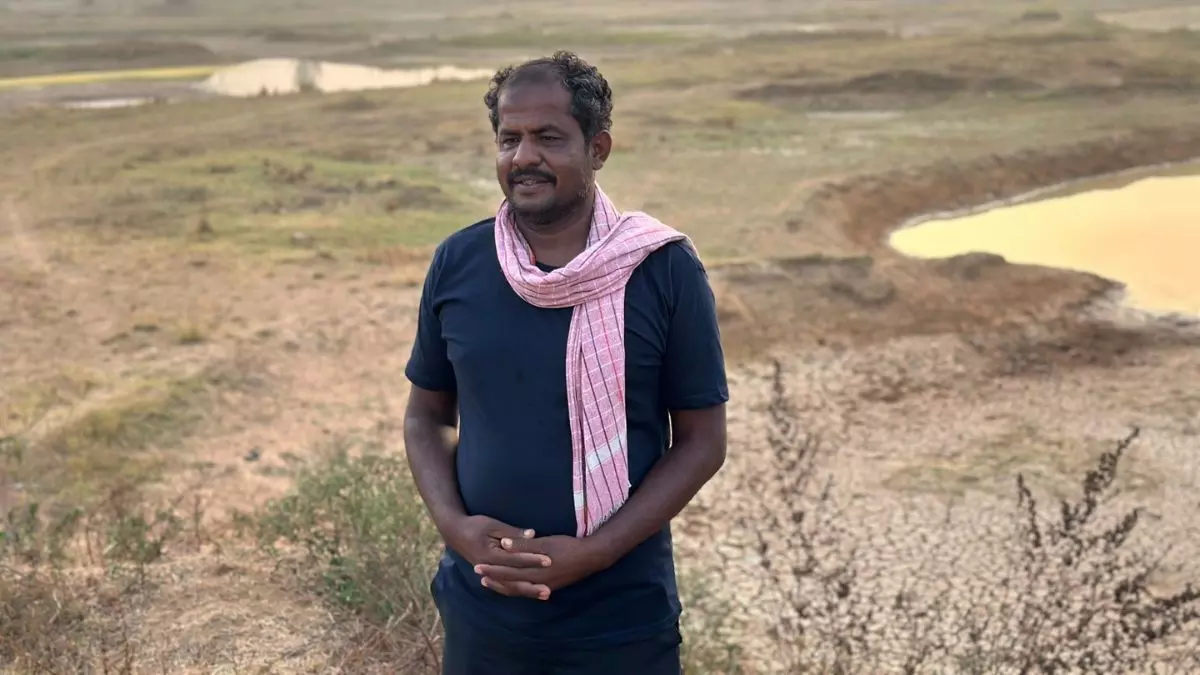Nurturing Nature with SEEDS: Sustainable Water Solutions in Huvinayakanahalli

In a country where over a billion people vie for resources, water scarcity in India is a pressing concern.
In a country where over a billion people vie for resources, water scarcity in India is a pressing concern. Rapid population growth, coupled with industrial expansion and urban sprawl, has strained existing water supplies. This scarcity is exacerbated by seasonal monsoons that deliver water in an unevenly distributed pattern, leading to periods of severe drought interspersed with flooding. Sustainable water management practices are vital not only for maintaining the ecological balance but also for ensuring the long-term availability of water for agriculture, industry, and domestic use.
The Water Crisis in Bengaluru: A Case Study
Bengaluru, once known as the "land of a thousand lakes," has witnessed a dramatic transformation due to its explosive urban growth. The ecological landscape, characterized by hills and valleys, supported a natural drainage system essential for replenishing lakes and groundwater. However, unchecked urban development led to the encroachment and pollution of these vital water bodies. As the city expanded, many lakes, which were once the heart of Bengaluru’s water system, succumbed to pollution and illegal land grabs, significantly disrupting the local biodiversity and water availability.
SEEDS to the Rescue: Revitalizing Huvinayakanahalli Lake
In response to this ecological crisis, Sustainable Environment and Ecological Development Society (SEEDS) , a 30 year old organization, along with local partners, took a formidable stand to rejuvenate the Huvinayakanahalli Lake in North Bengaluru. This peri-urban area, critical for groundwater preservation and agriculture, faced severe challenges due to blocked channels and invasive weeds. SEEDS initiated a comprehensive ecological restoration project aimed at reviving the lake and surrounding wetlands, which will be crucial for maintaining the area’s environmental health and local livelihoods.
Restoration Efforts and Community Engagement
The restoration of Huvinayakanahalli Lake involved several key interventions:
- Unblocking Water Channels: By clearing out the channels that feed into the lake, water flow was restored, which helped in maintaining adequate water levels throughout the year.
- Desilting: Removing silt deposits from the lake bed increased its water holding capacity, crucial for both drought and flood periods.
- Wetland Plantations: Introducing native plant species around the lake shores and wetlands not only helped in stabilizing the soil but also enhanced the lake’s ability to retain water and prevent flooding.
These efforts were complemented by robust community engagement programs that included training in sustainable farming practices, awareness sessions on water conservation, and biodiversity initiatives that encouraged the planting of native trees and vegetation.
Transformative Impacts on Local Livelihoods
The impact of the restoration efforts at Huvinayakanahalli Lake is most vividly seen in the lives of the local residents and farmers. People like Mr. Byregowda, Vijay Kumar, and Suresh have experienced firsthand the benefits of these initiatives. The restored lake has led to enhanced groundwater recharge, increased water availability in lakes, wells, and borewells, and improved agricultural productivity. This has strengthened the socio-economic fabric of the community and offered new economic opportunities through revitalized farming and fishing activities.
Local residents like Vijay Kumar and Suresh reflect on the significant changes:
Vijay Kumar, a lifelong Huvinayakanahalli resident, reflects on how SEEDS transformed the agricultural landscape of his community. Having returned to farming after a career in economics, Vijay credits the SEEDS lake restoration project for the dramatic improvement in water resources. This rejuvenation has not only revived his family's farming heritage but also bolstered the local agriculture sector. Through initiatives like strengthening groundwater recharge and enhancing rainwater harvesting, SEEDS has ensured a sustainable water supply, profoundly benefiting Vijay and his fellow farmers by supporting their livelihoods and revitalizing the land.
Suresh, another local farmer, shares his gratitude towards SEEDS for their impactful ecological work in Huvinayakanahalli. The organization's commitment to restoring essential water management systems and increasing the green cover has not only improved water availability but also promoted a healthier environment. These efforts have educated the community on sustainable agricultural practices, leading to more organic farming and reducing reliance on harmful methods. The enriched water sources have invigorated farming, animal husbandry, and fishing, creating new economic opportunities and enhancing the overall quality of life for Suresh and his community.
The Path Forward with SEEDS
The work done by SEEDS in Huvinayakanahalli is an indication of the power of collaborative ecological restoration. The project not only tackled the immediate issues of water scarcity and environmental degradation but also set a precedent for how community-driven efforts can lead to sustainable development. Moving forward, SEEDS remains committed to its mission of empowering communities to manage their natural resources wisely, ensuring a healthier planet for future generations.
Conclusion
In conclusion, the story of Huvinayakanahalli is a beacon of hope. It demonstrates that with the right approach and community involvement, it is possible to overcome the challenges of water scarcity and environmental degradation, paving the way for a sustainable and prosperous future.








